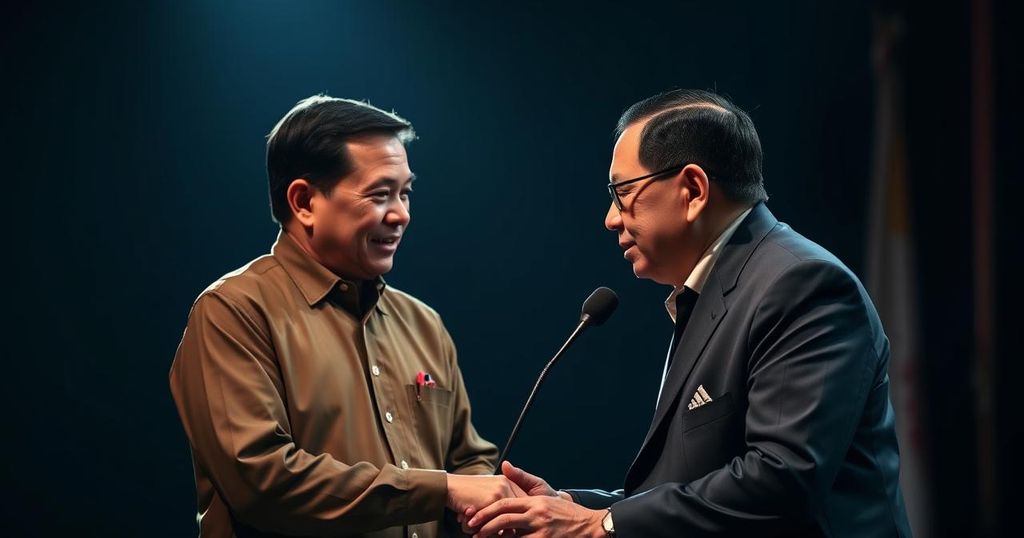Global Hot List: Political Turbulence Across Nations

The Global Hot List highlights significant political dynamics across various countries, focusing on electoral challenges and shifts. Key points include the stability of Kamala Harris’s candidacy in the USA, a rural-urban voting divide in India’s recent elections, the rise of an extremist party in Lithuania, threats of a nationwide strike in Mozambique over alleged electoral fraud, potential snap elections in Ireland, fears of undemocratic practices in Georgia, the impeachment proceedings in Kenya, and tensions in the Philippines between political allies. The list concludes with concerns over police-influenced politics in Brazil.
The Global Hot List, a dynamic compilation of pressing political developments worldwide, highlights critical situations from various nations as assessed by political expert Brad Glasser. The current listings emphasize different electoral challenges and shifts in dynamics, beginning with concerns over Kamala Harris’s viability in the USA. Senior adviser David Plouffe warns against heeding fluctuating polls, suggesting that the race remains stable as Democrats pivot towards strengthening their ground game ahead of election day. In India, local elections in Haryana revealed a discernible divide between urban and rural voting patterns, with the BJP performing strongly in cities and Congress gaining traction in rural areas. Additionally, in Lithuania, the emergence of an extremist party, founded by controversial politician Remigijus Zemaitaitis, marks a troubling trend amidst a backdrop of far-right ascendance across Europe. Outrage in Mozambique follows the assertion by independent presidential candidate Venancio Mondlane, who claims electoral victory and threatens a nationwide strike against the ruling Frelimo party, long accused of electoral manipulation. contending with a potential snap election due to declining polls for the Sinn Fein party in Ireland, political landscapes seem equally unstable. Georgia faces heightened tensions, with fears that the ruling pro-Russian party may undermine democratic processes through manipulative tactics in their election. Similarly, Kenya grapples with the impeachment of Vice President Rigathi Gachagua over corruption allegations. Finally, in the Philippines, Vice President Sara Duterte publicly distanced herself from President Ferdinand Marcos Jr. amidst a political fallout between their influential families, highlighting ongoing tensions in Filipino politics. Brazil rounds out the list with a peculiar trend of police officers utilizing social media influence for political aspiration, raising significant concerns regarding human rights and police brutality amid their governance.
The Global Hot List serves as a strategic overview of pivotal political occurrences across the globe, curated to draw attention to significant electoral challenges and transformations. It sheds light on the dynamics shaping the political landscape in various nations, emphasizing the interconnectedness of local and global issues. Key themes include socio-political polarization, the rise of extremist parties, electoral integrity, and the implications of social media on political discourse.
The ongoing political events showcased in the Global Hot List illuminate a complex tapestry of electoral strategies, challenges, and the interplay of political alliances within different nations. From the volatility in American electoral prospects to the rise of extremist parties in Europe and the palpable tensions in South America and Asia, these developments underscore the critical need for vigilance and engagement in the global political arena.
Original Source: www.semafor.com







